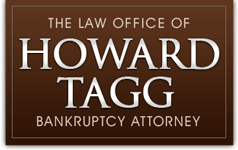Abuse
What does Abuse mean?
Under the Bankruptcy Abuse Prevention and Consumer Protection Act of 2005 (BAPCPA), if a debtor does not rebut an abuse, a presumption of abuse can arise under the new Chapter 7 Means Test. When an abuse arises, Section 707(b) of the Federal Bankruptcy Code governs the legal issues. This law was amended by the BAPCPA to provide for dismissal of Chapter 7 cases if an abuse is found. In such cases, abuse is presumed if the debtor's current monthly income, over the last 5 years, has been more than $10,950, or 25% of their non-priority unsecured debt, as long as that amount is at least $6,575. Debtors can rebut the presumption of abuse under 707(b) by documenting special circumstances where they may need additional income to pay unavoidable expenses. For instance, this might be done if the debtor is unable to meet their monthly financial obligations.
Abuse can also be made on general grounds when a debtor acts in bad faith. This type of abuse can lead to dismissal of a Chapter 7 bankruptcy case, with or without prejudice, but only a bankruptcy court judge has the authority to dismiss a case for abuse. Committing an abuse is a civil matter evaluated by the bankruptcy court.
Dismissals may be allowed if a debtor files their petition in a bad faith, a court trustee is of the opinion a debtor is abusing the bankruptcy process with improper legal action, fraudulent activity, or any delay that damages the bankruptcy process, if a debtor fails to provide all the required information concerning the case, if the overall debtor's financial situation indicates abuse, if a debtor fails to take debt management training before receiving a discharge, if the debtor's case is not in compliance with bankruptcy law, or a debtor has a majority of consumer debts and not business debts.
Lawyers near
Term of the Day
Abuse of a child
Abuse is any act against a child which results in death, serious physical or emotional harm, or sexual abuse.
Category: Adoption




